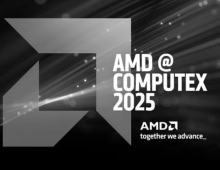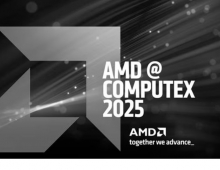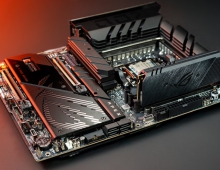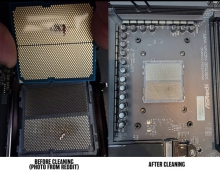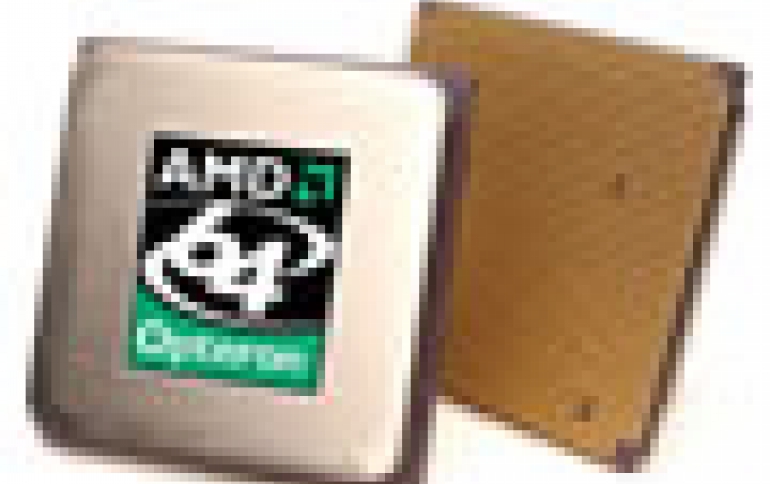
AMD Continues Momentum with Broad Software Industry Support for Opteron
AMD announced broad software industry support for its upcoming Next-Generation AMD Opteron processor family
"As our server business continues to grow each year and we move toward greater than 30 percent marketshare, the software development community is seizing the opportunity to support and grow with AMD," said Marty Seyer, senior vice president, Commercial Segment, AMD. "Since introducing the AMD64 instruction set and Direct Connect Architecture in 2003, AMD has worked with our software partners and the open source software community to ensure that multi-threaded and 64-bit applications harness the potential of AMD64 technology. Our ecosystem of software partners will continue to grow as a result of the inherent benefits that software developers can achieve with the Next-Generation AMD Opteron processor: a stable, upgradeable, proven innovation platform; superior workload and resource consolidation; and robust performance when running the world's most demanding applications."
With the industry facing increasing demands for technologies that enable data center resource consolidation and lower total cost of ownership (TCO), the Next-Generation AMD Opteron processor is designed to provide a smarter choice with the introduction of AMD Virtualization(TM) technology and a seamless upgrade path from dual-core to quad-core processing. In addition, the AMD Opteron processor with Direct Connect Architecture reduces or eliminates performance bottlenecks, so that software can leverage AMD64 dual-core technology and multi-threaded development methodologies to push the boundaries of data analysis and real-world simulations with faster, more powerful and efficient hardware.
"Customers and partners are demanding solutions that help them achieve business agility and advance their businesses with high-performance IT infrastructure," said Bob Muglia, senior vice president of the Server and Tools Business at Microsoft Corp. "The Next-Generation AMD Opteron processor, along with current and future versions of Windows Server, will enhance software development and drive further adoption of the latest innovations in security, virtualization and management."
Advancing Resource Consolidation: Preparing for the Next Stage of Virtualization and Multi-Core Processing
The Next Generation AMD Opteron processor is enabled with hardware-assists that provide virtualization software vendors with an improved, simplified infrastructure for offering mainframe-class virtualization to the x86 market.
"VMware's virtualization platform and AMD Opteron processor-based systems are combined today in some of the most advanced data centers, resulting in significant power savings and unprecedented resource consolidation," said Brian Byun, vice president of Products and Alliances at VMware. "The Next-Generation AMD Opteron processor includes additional hardware support that further accentuates the benefits of VMware Infrastructure 3 as a true distributed platform for sharing resources transparently across the enterprise."
Operating System (OS) vendors, including open source vendors, are already shipping operating systems that take advantage of multi-core processors.
"Back in early 2003, Novell worked alongside AMD to bring the first production-level 64-bit operating system to the enterprise market, and since that time, our collaboration on solutions for the open source community has remained very active," said Roger Levy, vice president, Open Platform Solutions, at Novell. "AMD's Next-Generation AMD Opteron processor platform will enable customers to take full advantage of virtualization features in the recently launched SUSE Linux Enterprise 10."
The Next-Generation AMD Opteron processor family will also prepare the industry for a seamless transition to quad-core computing by providing unparalleled platform stability. Multi-core processors help developers break through today's single-core performance limitations, providing performance capacity designed to tackle tomorrow's advanced software demands. The continued widespread adoption of this technology is expected to allow software engineers to use multi-threading more broadly in code designs, facilitating the downward filtering of sophisticated multi-threaded applications from the enterprise to the client and consumer markets.
AMD plans to announce the availability of the Next-Generation AMD Opteron on August 15, 2006. Also next week, at the LinuxWorld Conference and Expo, held August 14-17, 2006 in San Francisco, AMD will be participating in several panel discussions, including "Linux in the Channel: Interactive Discussion Between the Channel and Linux Vendors," "The State of Linux on the Desktop: An OSDL Desktop Linux Working Group Panel Discussion," and "How Emerging Data Center Architectures Are Making Virtualization a Reality." For more information, please visit http://www.linuxworldexpo.com/live/12/.
With the industry facing increasing demands for technologies that enable data center resource consolidation and lower total cost of ownership (TCO), the Next-Generation AMD Opteron processor is designed to provide a smarter choice with the introduction of AMD Virtualization(TM) technology and a seamless upgrade path from dual-core to quad-core processing. In addition, the AMD Opteron processor with Direct Connect Architecture reduces or eliminates performance bottlenecks, so that software can leverage AMD64 dual-core technology and multi-threaded development methodologies to push the boundaries of data analysis and real-world simulations with faster, more powerful and efficient hardware.
"Customers and partners are demanding solutions that help them achieve business agility and advance their businesses with high-performance IT infrastructure," said Bob Muglia, senior vice president of the Server and Tools Business at Microsoft Corp. "The Next-Generation AMD Opteron processor, along with current and future versions of Windows Server, will enhance software development and drive further adoption of the latest innovations in security, virtualization and management."
Advancing Resource Consolidation: Preparing for the Next Stage of Virtualization and Multi-Core Processing
The Next Generation AMD Opteron processor is enabled with hardware-assists that provide virtualization software vendors with an improved, simplified infrastructure for offering mainframe-class virtualization to the x86 market.
"VMware's virtualization platform and AMD Opteron processor-based systems are combined today in some of the most advanced data centers, resulting in significant power savings and unprecedented resource consolidation," said Brian Byun, vice president of Products and Alliances at VMware. "The Next-Generation AMD Opteron processor includes additional hardware support that further accentuates the benefits of VMware Infrastructure 3 as a true distributed platform for sharing resources transparently across the enterprise."
Operating System (OS) vendors, including open source vendors, are already shipping operating systems that take advantage of multi-core processors.
"Back in early 2003, Novell worked alongside AMD to bring the first production-level 64-bit operating system to the enterprise market, and since that time, our collaboration on solutions for the open source community has remained very active," said Roger Levy, vice president, Open Platform Solutions, at Novell. "AMD's Next-Generation AMD Opteron processor platform will enable customers to take full advantage of virtualization features in the recently launched SUSE Linux Enterprise 10."
The Next-Generation AMD Opteron processor family will also prepare the industry for a seamless transition to quad-core computing by providing unparalleled platform stability. Multi-core processors help developers break through today's single-core performance limitations, providing performance capacity designed to tackle tomorrow's advanced software demands. The continued widespread adoption of this technology is expected to allow software engineers to use multi-threading more broadly in code designs, facilitating the downward filtering of sophisticated multi-threaded applications from the enterprise to the client and consumer markets.
AMD plans to announce the availability of the Next-Generation AMD Opteron on August 15, 2006. Also next week, at the LinuxWorld Conference and Expo, held August 14-17, 2006 in San Francisco, AMD will be participating in several panel discussions, including "Linux in the Channel: Interactive Discussion Between the Channel and Linux Vendors," "The State of Linux on the Desktop: An OSDL Desktop Linux Working Group Panel Discussion," and "How Emerging Data Center Architectures Are Making Virtualization a Reality." For more information, please visit http://www.linuxworldexpo.com/live/12/.





